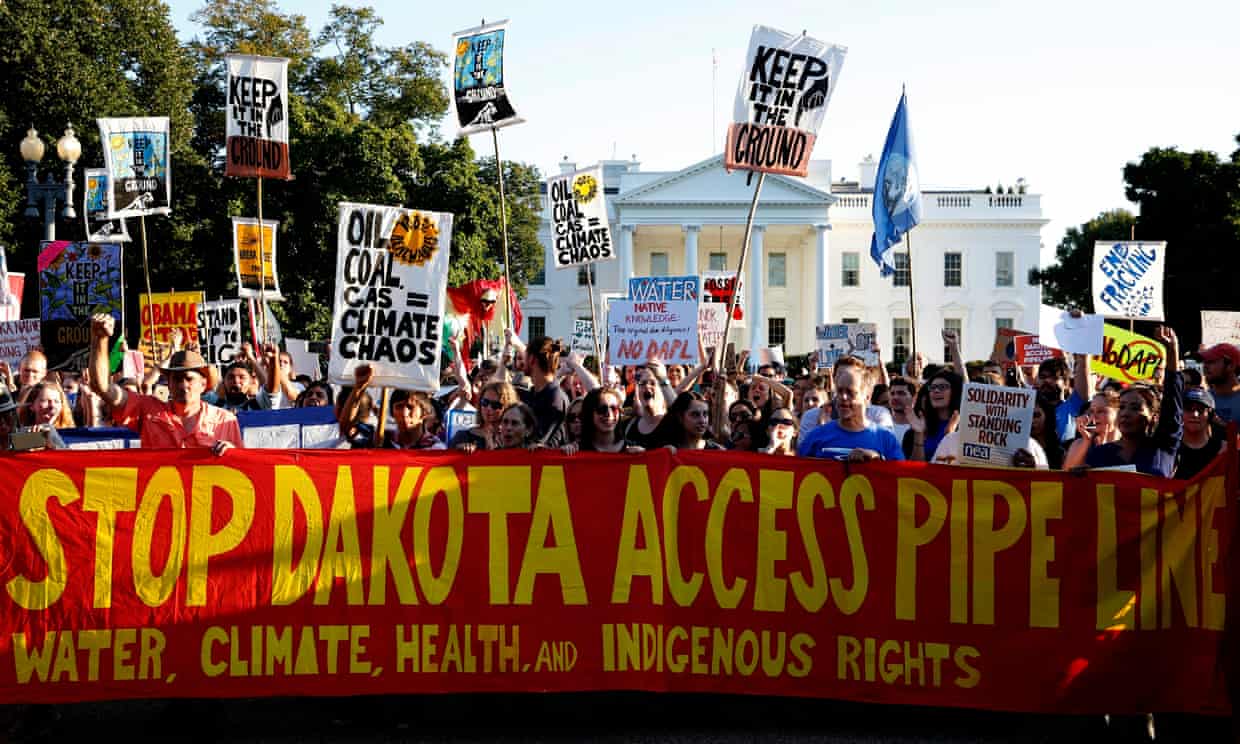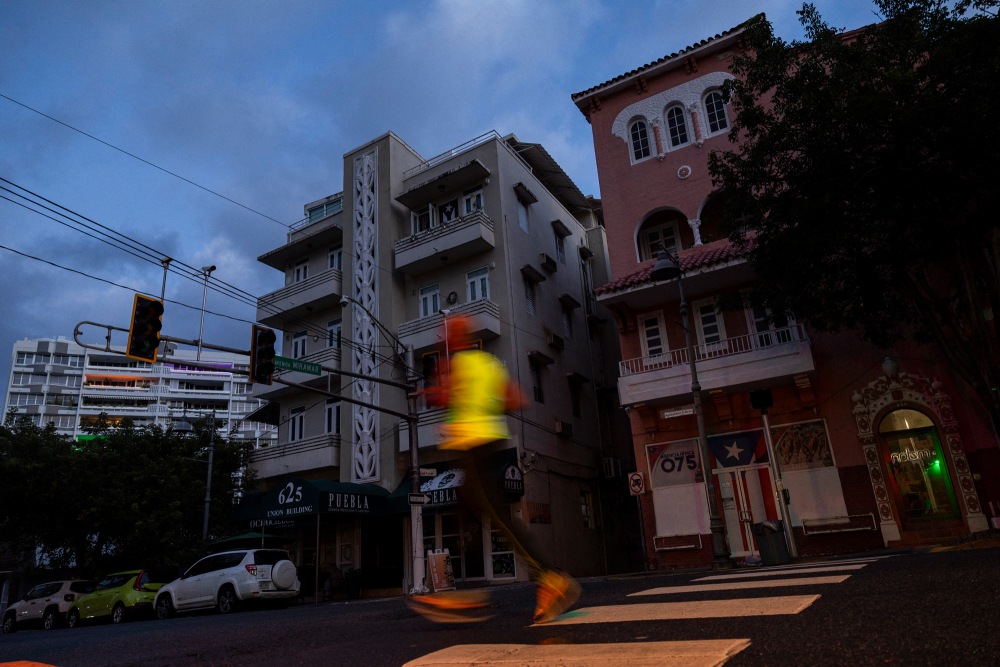
It looks to Lori Glover “like a long snake going across the whole desert”. For David Keller, it is “like having a very beautiful historic home and having someone run a bulldozer through the kitchen”. And in Yolonda Blue Horse’s view, it is another example of disrespect from an industry that does not care about native people.
Before the Dakota Access pipeline sparked continuing protests that led to national attention and an Obama administration intervention, a feisty group of activists in remote west Texas waged a long battle against the same company when it pressed ahead with plans to run a 143-mile natural gas pipeline to Mexico through some of the state’s most pristine countryside.
The construction traffic, the diggers churning up ranchland and the serpentine sections of 42in pipe being placed along the route in preparation for their burial testify to their defeat, as do the fruitless legal challenges.
Activists held a march to show solidarity with the Dakota movement on Friday along the route in Alpine, a small town near the tourist magnet Marfa, a desert city 220 miles south-east of El Paso. It was supported by the American Indian Movement of Central Texas (AIMCTX), whose members have demonstrated against the Dakota pipeline outside the Dallas headquarters of Energy Transfer Partners, the company behind both schemes.





 The island of Puerto Rico is suffering another island-wide power outage, just months after a dayslong...
The island of Puerto Rico is suffering another island-wide power outage, just months after a dayslong... A large sponge, a cluster of anemones, and other life is seen nearly 230 meters deep...
A large sponge, a cluster of anemones, and other life is seen nearly 230 meters deep... Letters went out to hundreds of workers at the National Oceanic and Atmospheric Administration (Noaa) on...
Letters went out to hundreds of workers at the National Oceanic and Atmospheric Administration (Noaa) on... Another round of torrential rain and flash flooding came Saturday for parts of the South and...
Another round of torrential rain and flash flooding came Saturday for parts of the South and...






























